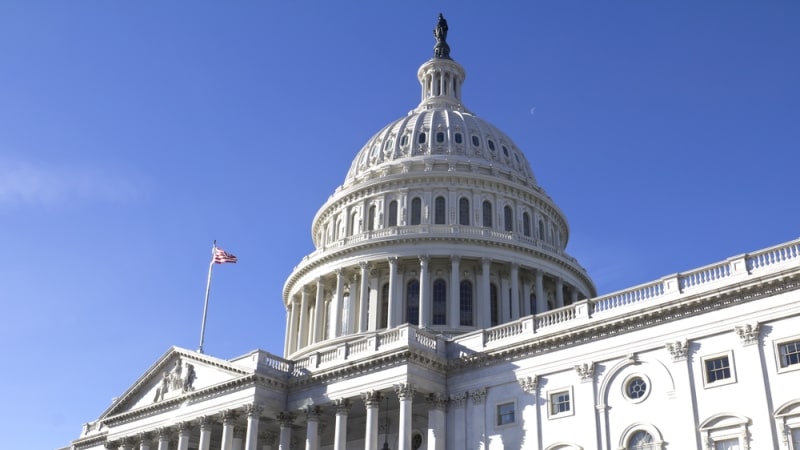
The bipartisan version of the Fiscal Year 2020 National Defense Authorization Act (NDAA) offers paid family leave for all Federal employees, prevents the White House from merging Office of Personnel Management (OPM) functions with the General Services Administration (GSA), and establishes the Space Force as a new branch of the military.
The NDAA’s conference report, set to be debated in both branches of Congress but agreed upon by Senate and House negotiators, includes a number of provisions along with $738 billion in funding for the Pentagon. One provision that will affect most all Federal employees is the inclusion of the Federal Employee Paid Leave Act, which grants 12 weeks of paid leave for new parents. The provision applies to all executive agencies, as well as Congress and its legislative agencies.
The NDAA also prevents the Trump Administration from moving forward on its proposed merger of OPM and GSA, prohibiting any transfer of functions or programs until the National Academy of Public Administration (NAPA) conducts a report on the move. NAPA will submit the report to Congress and OPM will have six months to respond with a business case analysis for its preferred moves.
The bill also authorizes the creation of the Space Force as a separate branch of the military, a goal of the Trump administration. Under the NDAA, Space Force will see a similar set-up to the Marine Corps, as the branch will sit under the purview of the Secretary of the Air Force.
In the more traditional IT-related provisions of the NDAA, the bill includes many cyber-related provisions. One provision of particular interest to IT is the requirement to conduct a zero-based review of cyber and IT personnel at DoD. Military agencies will be required to assess their workforce, compare to “comparable industry organizations,” and report on their findings to the DoD CIO and the Under Secretary of Defense for Personnel and Readiness. These reports will be used to guide prioritization, find gaps in the workforce, and develop a roadmap of prioritized activities.
Other cyber-related reports required by the NDAA include developing a framework for enhancing the cybersecurity of the defense industrial base, developing metrics to assess the readiness of cyber forces, and creating an annual report on military cyberspace operations. The bill also takes up existing efforts by requiring DoD to consult with a consortium of universities on cybersecurity and extending the work of the Cyberspace Solarium Commission.
The bill also offers special hiring authorities for the Joint Artificial Intelligence Center, offers fellowships on technology and national security for university students, and allocates $275 million for 5G test sites and research.
